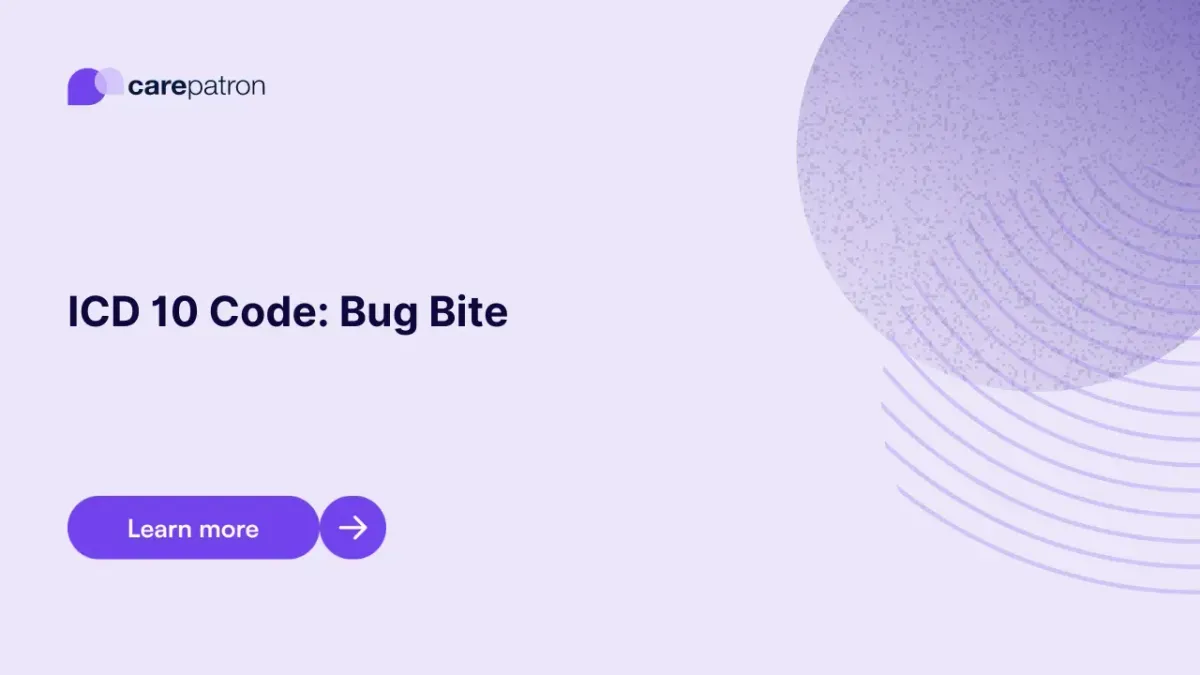
Bug Bite ICD-10-CM Codes
Learn about the different bug bite ICD-10-CM codes through this guide.
Use Code
EHR and practice management software
Get started for free
*No credit card required
Free
$0/usd
Unlimited clients
Telehealth
1GB of storage
Client portal text
Automated billing and online payments
